Futility at Midway…at First
We’ll be doing in-depth pieces about both of these battles in the coming weeks, but suffice it to say that during the Battle of Midway SBDs turned the tide of the war in the Pacific. Army B-17 Flying Fortress bombers, flying from Midway Island, flew bombing missions against the Japanese task force over several days and never hit a warship. They even threw torpedo-toting Army Martin B-26 Marauders at the Japanese, again with no success.
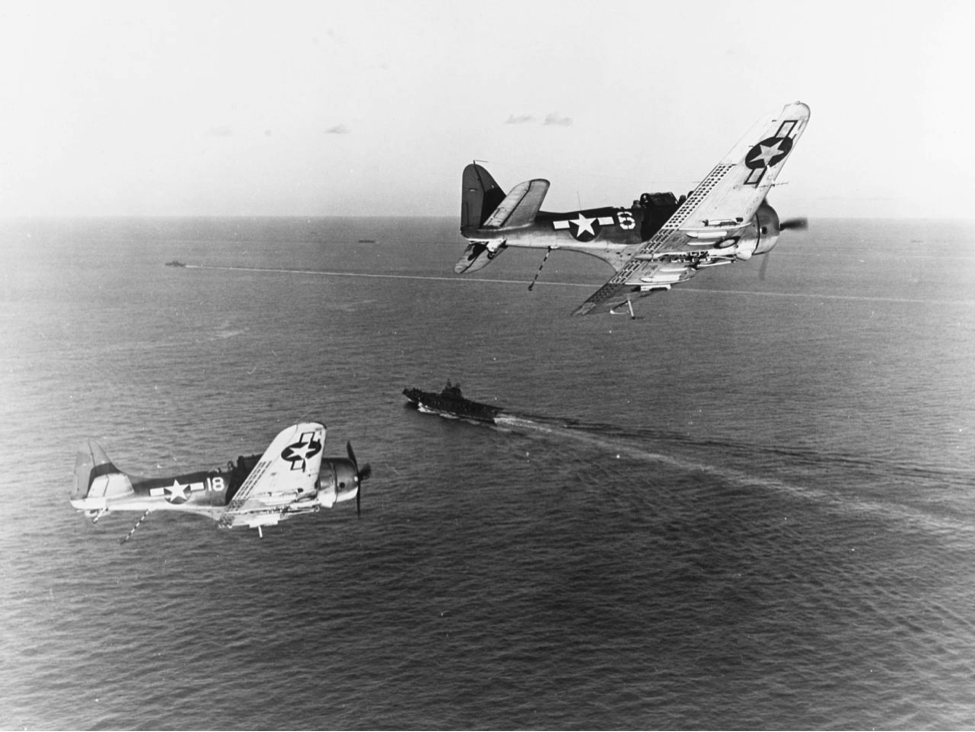
The Dauntless Makes Its Mark
Navy carrier-based TBD Devastator torpedo bombers were savaged by the Japanese fighters defending the task force. But this drew the Japanese fighters down to low altitude, opening the door for the SBDs to set up and carry out their dive bombing attacks from high altitude with minimal resistance. Essentially they sank three Japanese carriers during a single seven minute attack and another a day later. The vaunted Japanese carrier aviation never recovered.
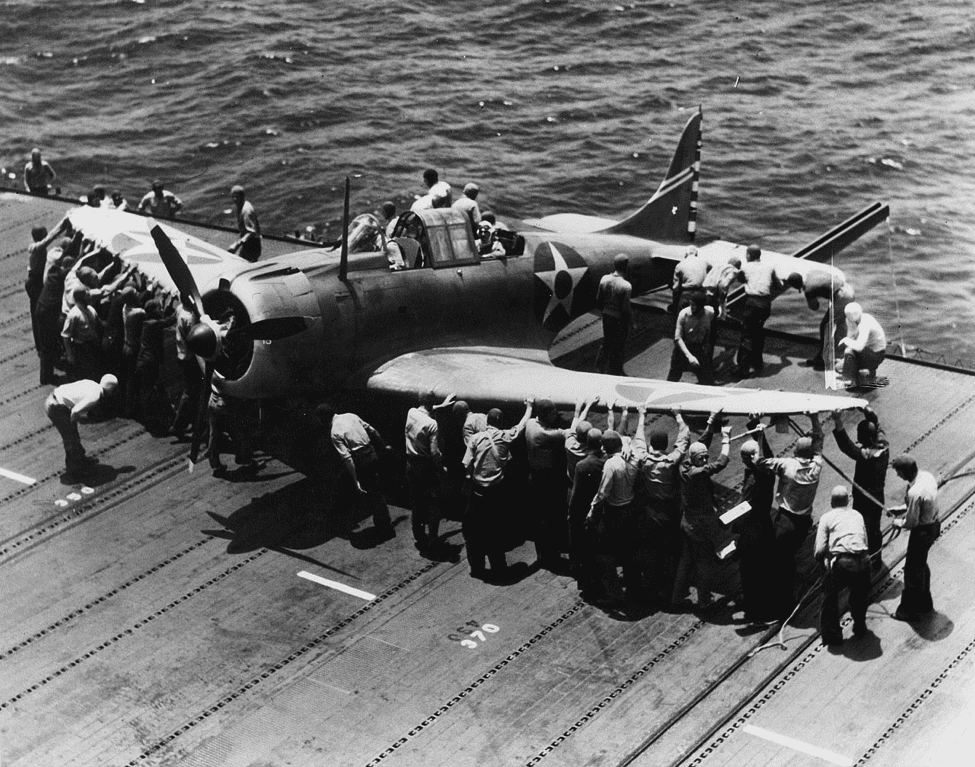
They Also Served
Dauntlesses continued to serve throughout the Pacific War. They helped defend Guadalcanal and attacked and sank additional Japanese shipping during that long campaign. By the time 1943 rolled around the Curtis SB2C Helldiver was beginning to replace the SBDs aboard Pacific Fleet carriers. The SB2C had real technical issues and never did completely replace the SBD. When crews nickname their aircraft “the Beast” it can’t be a good thing. It wasn’t. Meanwhile the Marines were perfectly happy flying their Dauntlesses.
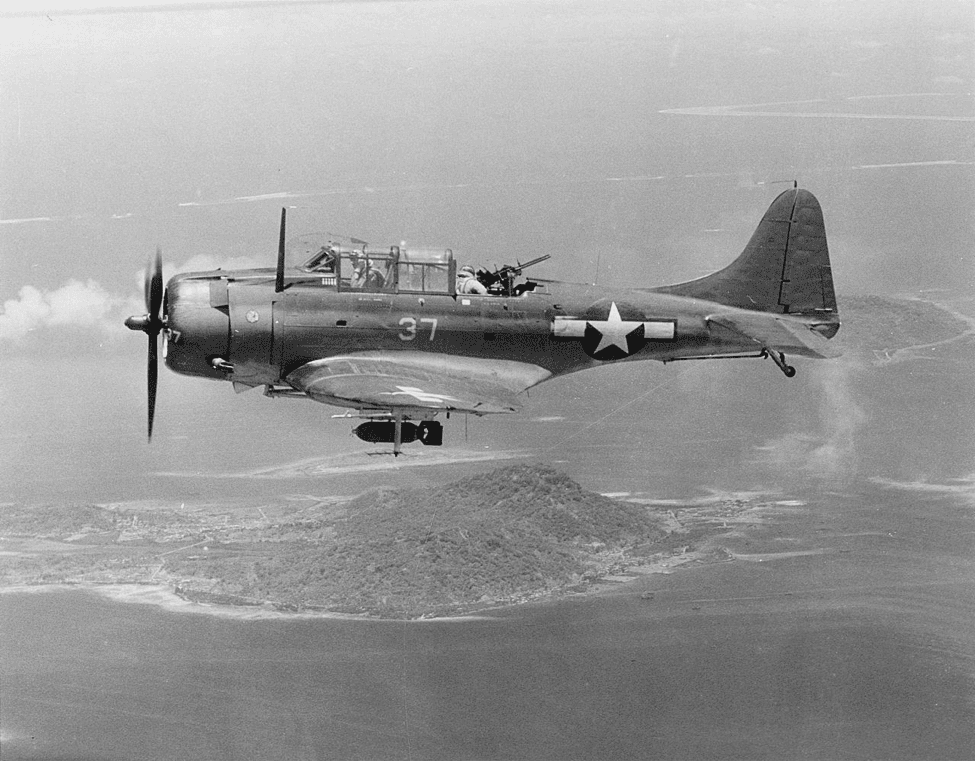
The Dive-Bombing Fighter
SBDs, armed with twin forward-firing 50 caliber machine guns as well as protective 30 caliber machine guns covering the tail, were formidable enough “fighters” in their own right. During the Battle of the Coral Sea, one SBD pilot shot down four Japanese aircraft and his gunner added another three shot down. The final kill ratio for the SBDs stood at 3.2 to 1- remarkable when considering how capable the Japanese pilots and their aircraft were, especially early in the war.
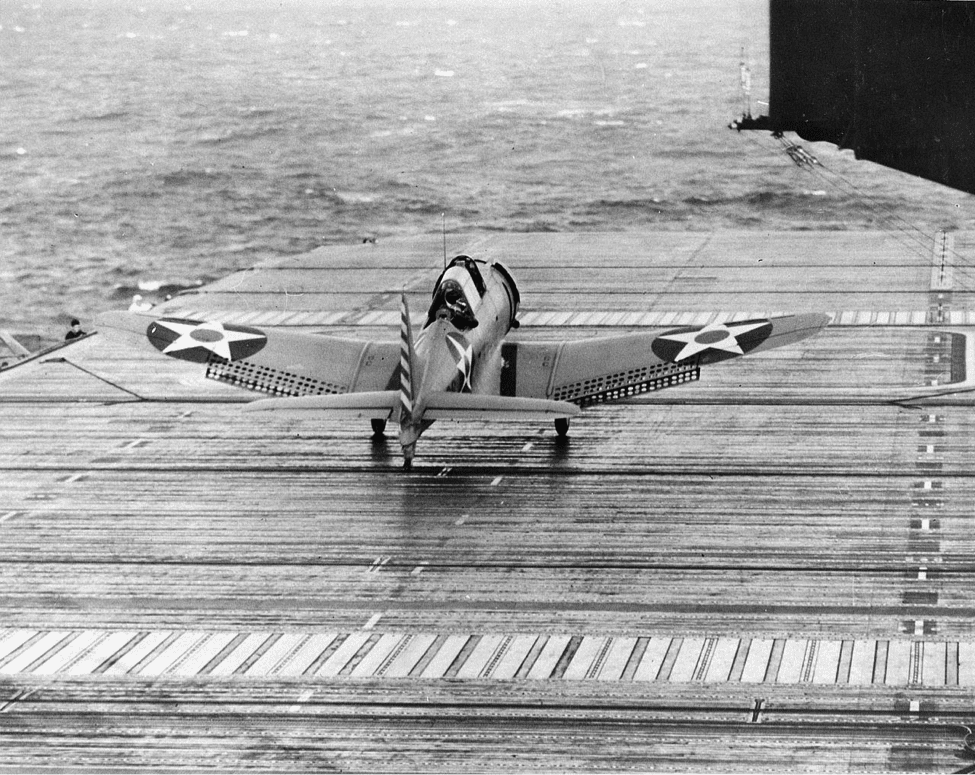
Combat in the Atlantic
The SBD was also sometimes used as an anti-submarine aircraft in the Atlantic against German U-boats. They also saw combat during the November 1942, flying from the carrier USS Ranger (CV-4) and two of the new escort carriers in support of the Allied landings in North Africa (Operation Torch), the Allied landings in North Africa in November 1942. Then during October of 1943 SBDs again operating from the Ranger flew bombing sorties against German shipping in near Bodo, Norway as part of Operation Leader.
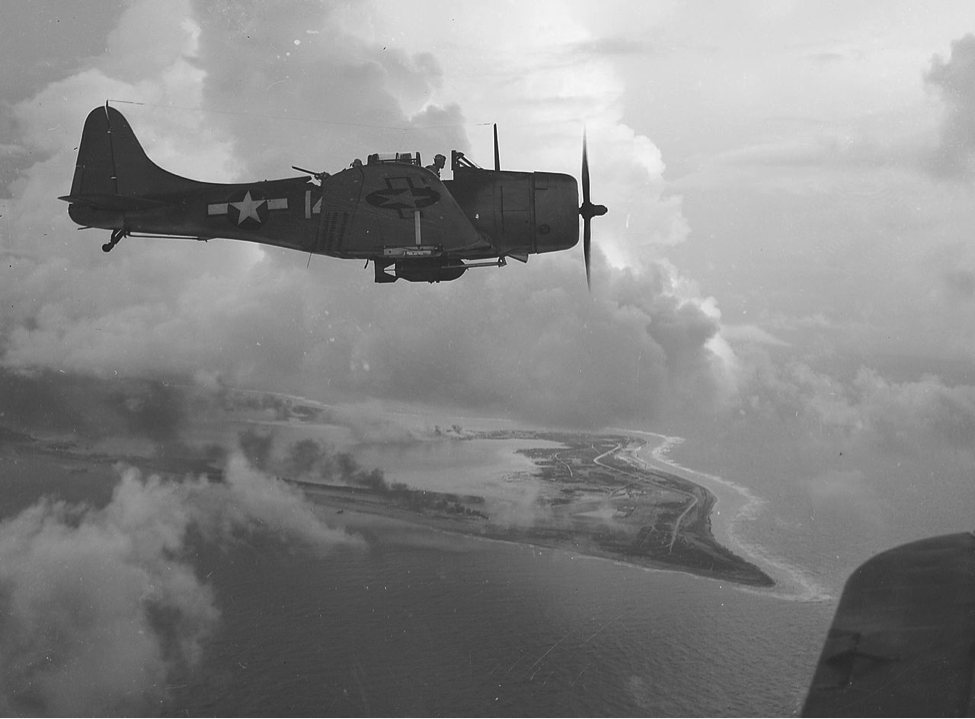
Those Wonderful Dive Brakes
A distinctive feature found on all variants of the SBD and A-24 was the perforated/split flaps (originally engineered for the BT-1) which were used to slow the aircraft during a dive bombing attack, reducing its terminal velocity to roughly 240 miles per hour. The devices also increases controllability and decreased tail buffet while the aircraft was delivering its deadly payload. Operators of the Douglas SBD/A-24 include Chile (A-24), France, Mexico, Morocco, New Zealand, United Kingdom, and the United States Navy, Marine Corps, and Army Air Forces (A-24).
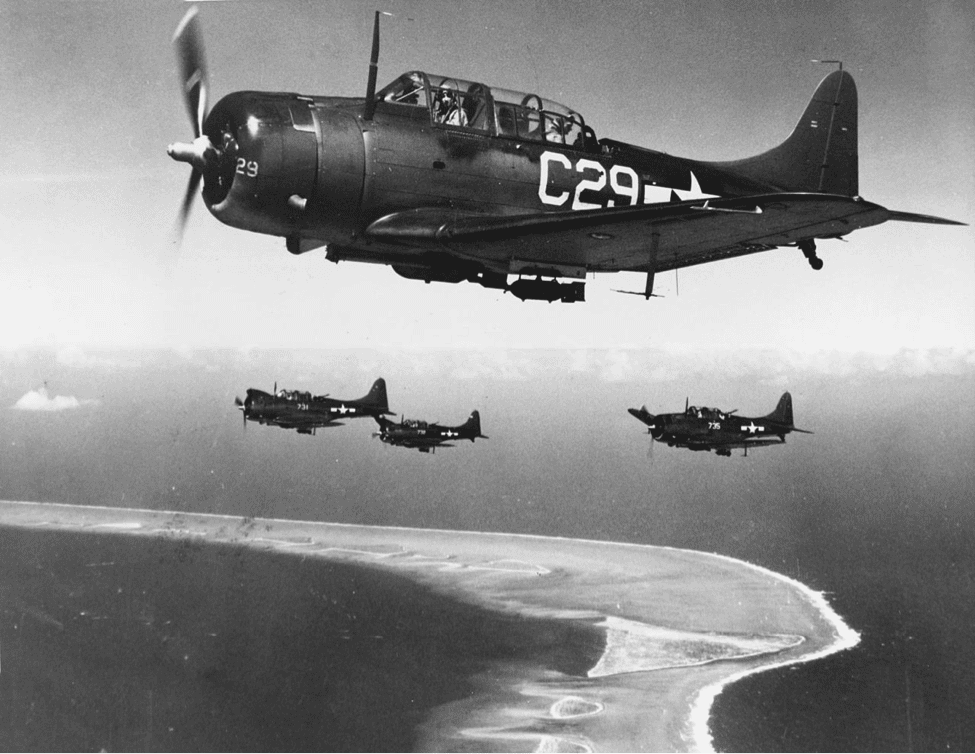
Still Thirsty for More Dauntless?
We’ve got much more Dauntless data in our companion piece right here.
